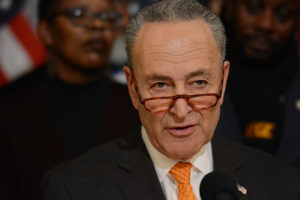
A procedural vote in the Senate to begin consideration of the fiscal year 2022 National Defense Authorization Act (NDAA) was delayed Wednesday morning following disagreements over whether to include a $250 billion China competition package with the defense policy bill. The move received pushback from Republicans such as Sen. Jim Inhofe (Okla.), the ranking member on the Senate Armed Services Committee, who believed the move to include the U.S. Innovation and Competition Act (USICA) should receive a standalone vote rather…

 By
By 











